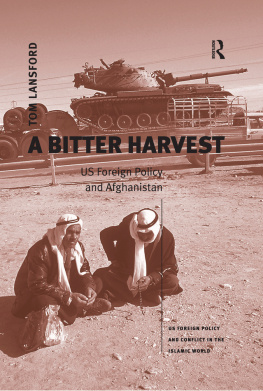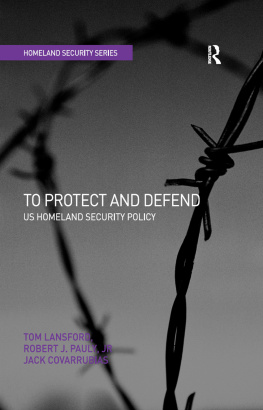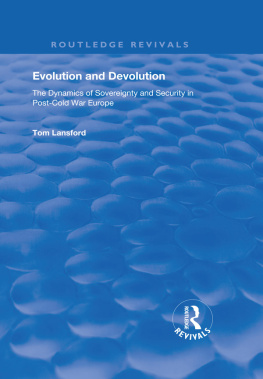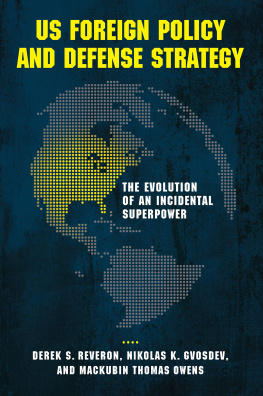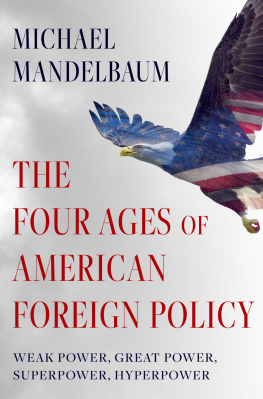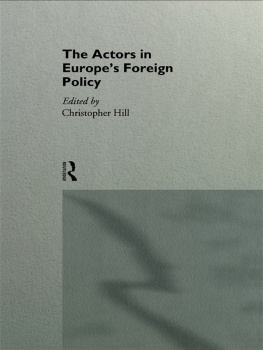A BITTER HARVEST
A Bitter Harvest
US Foreign Policy and Afghanistan
Tom Lansford
University of Southern Mississippi Gulf Coast
First published 2003 by Ashgate Publishing
Published 2016 by Routledge
2 Park Square, Milton Park, Abingdon, Oxon OX14 4RN
711 Third Avenue, New York, NY 10017, USA
Routledge is an imprint of the Taylor & Francis Group, an informa business
Copyright Tom Lansford 2003
The author has asserted his moral right under the Copyright, Designs and Patents Act, 1988, to be identified as the author of this work.
All rights reserved. No part of this book may be reprinted or reproduced or utilised in any form or by any electronic, mechanical, or other means, now known or hereafter invented, including photocopying and recording, or in any information storage or retrieval system, without permission in writing from the publishers.
Notice:
Product or corporate names may be trademarks or registered trademarks, and are used only for identification and explanation without intent to infringe.
British Library Cataloguing in Publication Data
Lansford, Tom
A bitter harvest: US foreign policy and Afghanistan.
(US foreign policy and conflict in the Islamic world)
1. United States - Foreign relations - Afghanistan
2. Afghanistan - Foreign relations - United States 3. United
States - Foreign relations - 1945-1989 4. United States
Foreign relations - 1989- 5. Afghanistan - History - 20th
century 6. Afghanistan - Politics and government - 20th
century
I. Title
327.7'30581
Library of Congress Cataloging-in-Publication Data
Lansford, Tom.
A bitter harvest: US foreign policy and Afghanistan / Tom Lansford.
p. cm. -- (US foreign policy and conflict in the Islamic world)
Includes bibliographical references (p.) and index.
ISBN 0-7546-3615-1 (alk. paper)
1. United States--Foreign relations--Afghanistan. 2. Afghanistan--Foreign
relations--United States. I. Title. II. Series.
E183.8.A3L36 2003
327.730581'09'045--dc21
2003055321
ISBN 13: 978-0-7546-3615-1 (hbk)
Like most academic endeavors, this project was possible only because of the support and assistance of many people. I would especially like to thank Ms Kirstin Howgate. We have now worked together on several projects and I always found her to be not only extremely helpful, but a consummate professional. In addition, I would like to thank Ms Maureen Mansell-Ward of Ashgate and Mr Jack Covarrubias of the University of Southern Mississippi for their aid in editing the manuscript. I am extremely grateful to Mr James D. Buffett for assistance with the writing process. Dr Eric Nelson, my friend and colleague here at the University of Southern Mississippi, was a good sounding board for both ideas and complaints throughout the project and I sincerely appreciate his kindness. I am extremely grateful to Dr Denise von Herrmann for her support over the course of this endeavor. I also want to thank my friend Patrick Hayden for his intellectual companionship and to wish him well in his new life in New Zealand. I also wish to acknowledge Kyle Bromwell, Drew Lucas, Mike Pappas and Ross Rutt. Finally, as always, I must thank Amber for the past, present and future.
Contents
Introduction
The Renewed Importance of Afghanistan in US Policy
The Legacy of History
Throughout its history, Afghanistan has consistently exerted an impact on international security that is significantly out of proportion to the population and geographic size of the state. It has been fought over by the great empires and has caused the demise of empires and world powers. Armies have traversed over Afghan territory on their way to conquest in Asia and have come in the opposite direction from Central and South Asia. For instance, Alexander the Great led his armies through the Khyber pass, while the later Mughal Empire would invade from India. British efforts to gain control of Afghanistan would lead to the collapse of governments as imperial forces faced defeat at the hands of the Afghan tribes.
Concurrently, outside powers would exert a significant influence over the country. Like many of the states of Asia and Africa, Afghanistan is an artificial construct of the colonial period. The landlocked state owes its creation to the actions and ambitions of imperial Russia and Great Britain as the two competed for power and influence in Central and South Asia. As a result of the arbitrary nature of the boundaries created by the two imperial powers, a number of ethnic groups were split and the traditional political balance in the region was disrupted. For instance, the dominant ethnic group in Afghanistan is the Pashtuns; however, the cleavage created by the colonial period left about half of the Pashtuns across the border in Pakistan. At the same time, groups such as the ethnic Tajiks and Turkmen found themselves in Afghanistan as a result of the Russian conquests of what would become Tajikistan and Turkmenistan and the subsequent British actions to expand their buffer-state against Moscow's southward drive.
The internal ethnic differences contributed to instability and strife throughout both the ancient and modern history of the region that became the state of Afghanistan. These rivalries were exacerbated by competition and feuds within ethnic groups. Such interethnic rivalry and strife was destabilizing, but the influx of foreign weapons and military aid further eroded the ability of successive regimes in Kabul to effectively govern with any degree of stability .
A variety of studies have noted the potentially destabilizing impact of arms sales and weapons transfers from great powers to peripheral states. However, to states experiencing internal conflict, weapons transfers and military assistance has a profoundly destabilizing impact. In Afghanistan, the impact of outside military aid tended to bring together the disparate ethnic groups who perceived such assistance as a means to drive-out the colonial powers, including the British and later the Russians.
The Great Game
During the nineteenth century, Afghanistan became the focus of what British colonial official Arthur Conolly first dubbed the "great game" for suzerainty. Until the end of the Third Afghan War in 1919, Tsarist Russia and Imperial Great Britain undertook a variety of diplomatic, military and economic actions to secure Afghanistan within their respective spheres of influence. For Moscow, Afghanistan was one step closer to the all-important warm-water port which would provide a trade route to the south and bolster control of Russia's Central Asian territories. For London, control over the region was as am important step in protecting the borders of the all-important colonies in India. British attempts to extend their sphere of influence into Afghanistan led to military intervention in the First Afghan War (1838-42), the Second Afghan War (1878-80), and the Third Afghan War (1919). The conclusion of this version of the Great Game between the two empires was essentially a draw. In 1921, the Treaty of Rawalpindi guaranteed Afghan independence on the part of the British. This was followed by a nonaggression pact between Afghanistan and the Soviet Union.
During the interwar years and indeed the early period of the Cold War, Moscow remained relatively uninterested in Afghanistan. Moscow and London even cooperated in efforts to prompt the Afghan King to expel the diplomatic corps of Germany and Italy. Towards the end of World War II, Afghanistan was one of only a handful of nations on the border of the Soviet Union in which Moscow did not try to acquire territory or engage in outright conquest. Meanwhile, it would be Kabul that sought to engage the interest of the outside powers as the Afghan government endeavored to tie itself to either bloc during the Cold War in an effort to gain economic and security assistance.

